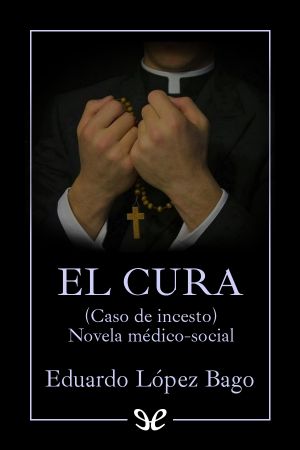El Cura

El Cura. (Caso de Incesto) Novela medico social (The Priest. Case of Incest. Medical-Social Novel) (1885) constitutes, together with La Regenta (1884-1885) by Leopoldo Alas, a.k.a. Clarin, one of the best Spanish examples of anti-clerical literature, and yet another example of Spain's increasing move towards secularization during the second half of the XIX Century. El Cura (Caso de Incesto) is the first novel of a trilogy -integrated also by El Confesionario (Satiriasis) (The Confessional - Satyriasis) (1885) and La Monja (The Nun) (1886)- that contests Christian sexual moral authority and demands its suppression based on the laws of Nature. More than a mere attack against the Catholic religion, El Cura highlights the misuse, on the part of the Church, of certain religious beliefs, to the detriment of the sexual (and mental) health of priests. Lopez Bago's anti-clericalism, thus, is rather physiological than political. As the author states, El Cura inaugurates a new series of studies aimed at fighting ecclesiastic celibacy and its dangerous consequences, seen from a socio-medical perspective. El Cura tells the story of the relationship between Roman, a handsome young priest, and his beautiful sister Gracia. The incest will not take place until the end, but the whole plot is geared towards it. Fermin, a fellow priest who lives with Ana, his concubine, cogently symbolizes the decay of ecclesiastical ethics. According to El Cura's clear-cut message, only the implementation of celibacy can save the Catholic Church. For, as Lopez Bago puts it, celibate priests live among us hiding their appetites, and do not starve to death for the sole reason that they feast in secrecy. This edition brings back to print an author and a novel that became a true best seller during a particularly agitated period of Spanish history, and in a time when sexuality fell under careful scrutiny both in its social and scientific aspects. The foreword by prof. Maite Zubiaurre highlights the common aspects shared by El Cura and Clarin's La Regenta (1884-1885), one of the great literary masterpieces of Spanish Realism and Naturalism. Both novels fall prey to controversy and take a skeptical look at ecclesiastical celibacy. More important, in both novels, female sexuality takes center stage, and unavoidably degenerates into pathology and hysteria."